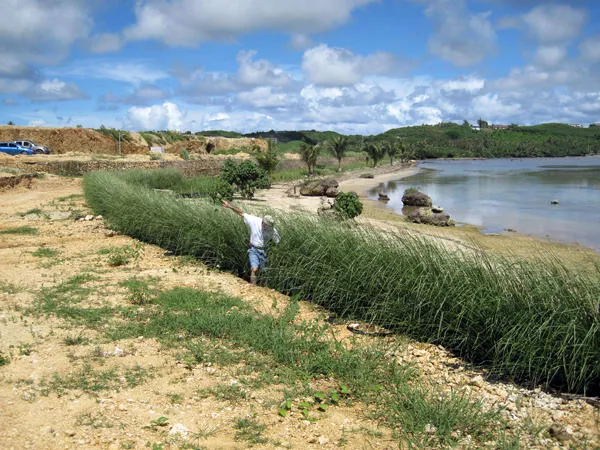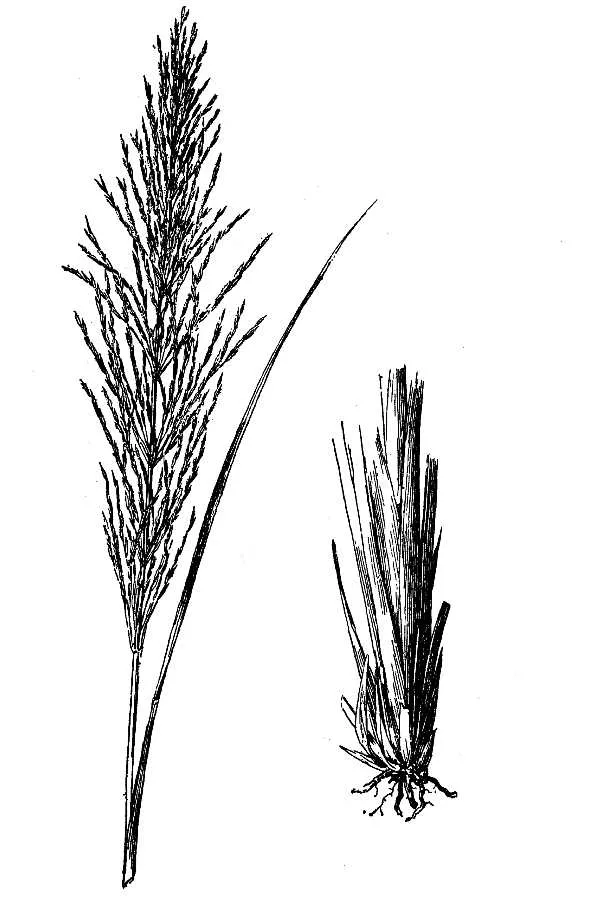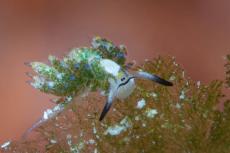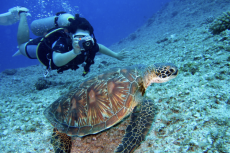Grasses can protect reefs
One of the major threats facing Guam’s reefs is soil erosion resulting in sedimentation and suffocation of the complex organisms that make up a reef system.
But according to a report from the University of Guam, soil science professor Mohammad Golabi’s research shows that using vetiver grass to shield reefs in Guam’s Pago Bay helps protect them from the effects of construction-induced run-off.
In this pilot project, professor Golabi, in cooperation with the developers planted vetiver grass along a Pago Bay beach area adjacent to a tract of land that had been cleared for a new housing project. Fully developed vetiver seedlings were planted in contour rows along the beach without disturbing the aesthetics of the area. The plants established in a few months, forming a thick hedge that prevents sediment from water-borne erosion from flowing into the ocean.
Once established, the plants can live up to 50 years and do not require maintenance other than periodic trimming. Under the proper conditions, thick hedges can be formed within one year of planting, although the report points out that, “it generally takes two to three growing seasons to establish a hedge dense enough to withstand torrential rains and protect the shoreline from sedimentation.”
“It is also expected that these vetiver hedges may even be able to protect the beach area against tidal surge once their root systems are well established. These hedgerows clearly demonstrate that the vetiver grass system is a unique, economical and effective bioengineering technology for protecting coral reefs from further degradation in the Pago Bay area and may be applied to other sites around the island,” Golabi said in a press release.
Vetiver’s ability to tolerate high stress situations, adapt to a variety of conditions, develop a dense vertical root system, and powerful soil binding characteristics make it an ideal candidate for controlling soil erosion.
—Professor Mohammad Golabi

- Log in to post comments






























